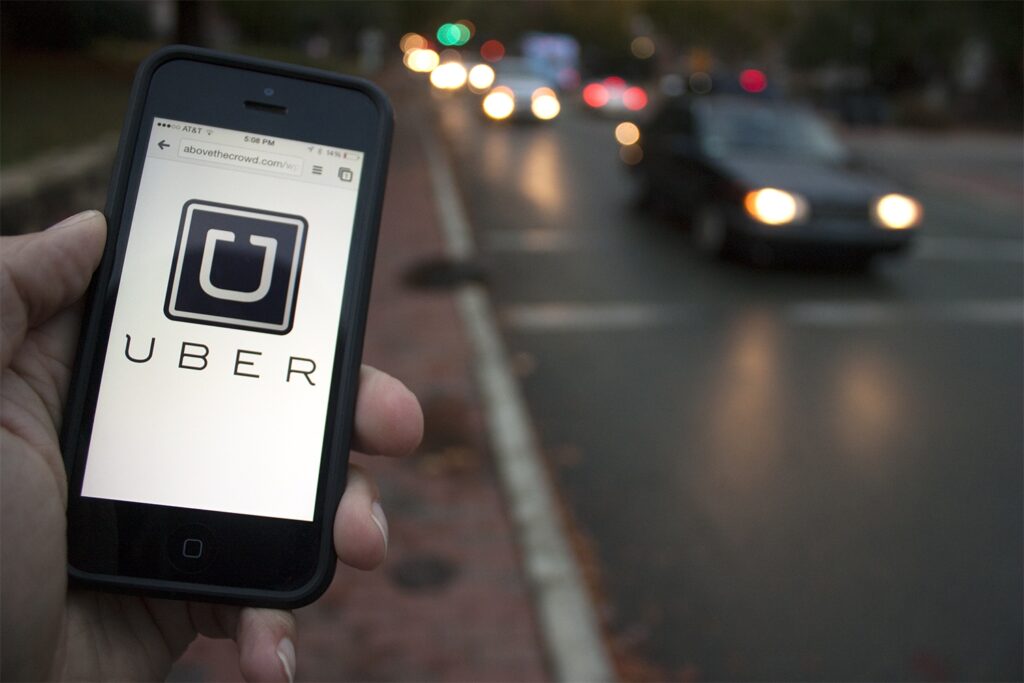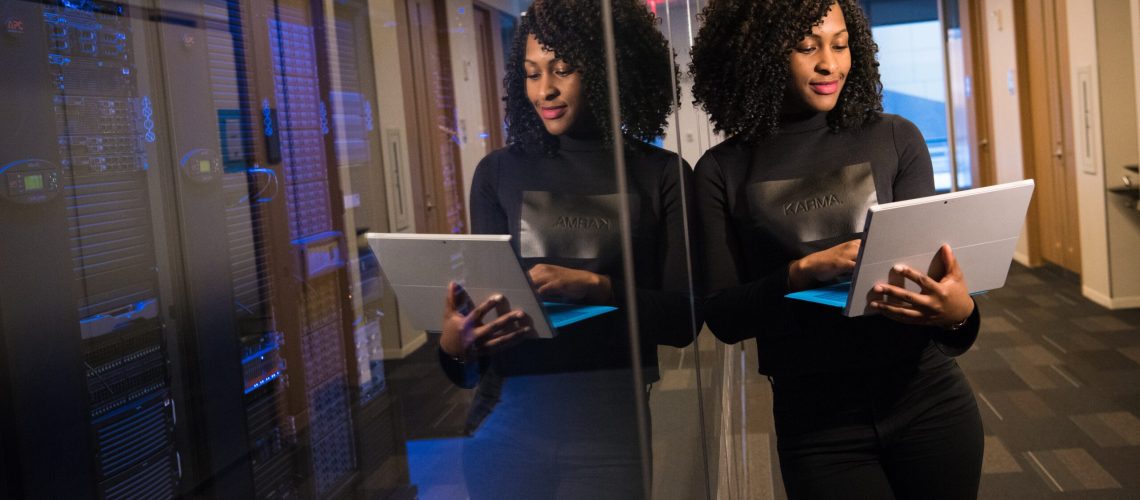Technologies have had a profound impact on society, transforming various aspects of our lives. The impact of these technologies has been so extensive that we can no longer think about the world without them. Everything around us is now technology driven and we are completely dependent on this technology for our survival.
For example, if you think about it, the things that you do every day without fail like getting up in the morning and going to work, cooking your meals, driving to different places, watching movies etc., all of them are made possible by technology. Let’s discuss many such impacts in detail.
Communication
Communication has changed! We’ve gone from snail mail to Facebook, from landlines to Skype. The internet, smartphones, and social media have revolutionized communication in ways we never would have imagined only a few years ago. They have made it easier to connect with others globally, share information instantly, and collaborate on a global scale. Communication barriers have been broken down, leading to increased connectivity and the exchange of ideas across borders.
Information access
The digital revolution has democratized access to information. With search engines and online databases, people can access vast amounts of knowledge with just a few clicks. This has empowered individuals, facilitated learning, and expanded opportunities for education and research.

The Internet is an incredible resource for learning about almost anything. You can find out about topics ranging from the history of spaceflight to how to make your own pasta at home! The Internet also provides access to educational materials from K-12 through higher education, including textbooks, course syllabi, lectures and other course materials.
This means that students can use their own devices to study anywhere they want without having to lug around heavy books or take notes in class (though some teachers will still require traditional hardcopy notes). In addition to saving time and money on physical textbooks, these digital materials are usually cheaper than their paper counterparts because they don’t have to be printed on demand—they can be downloaded directly from publishers’ websites!
Economic impact
Technology has transformed the economy in numerous ways. It has automated industrial processes, leading to increased productivity and efficiency. E-commerce has revolutionized retail, allowing businesses to reach global markets and consumers to shop from the comfort of their homes. The gig economy and remote work have also been facilitated by technology, changing the nature of work and creating new opportunities.
The rise of the internet has created a wide range of innovations that have improved the way we live our lives. Online shopping, social media sites like Facebook, Netflix streaming services and online banking are just some examples of how technology is changing our lives for the better.
Healthcare advancements
Healthcare technologies have made incredible contributions to the field of healthcare. Medical devices, such as MRI machines and robotic surgical systems, have improved diagnosis and treatment. Telemedicine has enabled remote consultations, expanding access to healthcare services, especially in underserved areas. Big data and AI have also contributed to medical research and personalized medicine.
For example, IBM Watson Health has partnered with Memorial Sloan Kettering Cancer Center to develop a cancer prediction tool that uses patient data from electronic health records (EHRs). The tool predicts whether patients are likely to develop cancer within five years based on 1-million patient records from the past 10 years.
Social connections
Social media platforms have transformed the way people connect and interact. They have allowed individuals to stay in touch with friends and family, share experiences, and form communities based on shared interests. However, they have also raised concerns about privacy, online harassment, and the impact of social media on mental health.
Studies suggest that social media can be beneficial for mental health in some cases. For example, research suggests that social media can help people feel less lonely and isolated. However, there are also concerns about the negative effects of social media on mental health. These include increased feelings of jealousy or envy when comparing oneself to others’ posts; anxiety caused by spending too much time on social media; depression from feeling like one’s life is less exciting than those being portrayed by others online; or embarrassment when an embarrassing status update is shared publicly by mistake.
In addition to these concerns about mental health, many people are worried about their privacy when using services such as Facebook or Instagram. These platforms allow users to share personal details about their lives with others without realizing who might be reading them—and how such information could be used against them if it fell into the wrong hands!
Transportation and mobility
The world has never been more connected than it is today, and transportation has been no exception. With the advent of electric vehicles and autonomous driving technology, we have entered a new era of transportation that could revolutionize the way we move people and goods around the globe.

Transportation technologies like ride-sharing platforms have also forever changed how we get from point A to point B. Ride-sharing platforms like Uber have disrupted traditional taxi services by offering convenient, cost-effective options for consumers. This is just one example of how technology is changing transportation for the better—and it’s only the beginning!
Environmental impact
Technology has both positive and negative effects on the environment. On one hand, it has facilitated the development of renewable energy sources, improved waste management, and enhanced environmental monitoring and conservation efforts. On the other hand, the production and disposal of electronic devices have contributed to electronic waste and resource depletion.
The most significant positive impact of technology on the environment is that it has facilitated the development of renewable energy sources. Renewable energy sources are those that are replenished at a rate that can sustain their use without depleting them. This includes solar power, wind power, geothermal energy (heat from within the Earth), hydroelectricity (water power), tidal power, biomass (plant matter used as fuel), hydrogen fuel cells (using water), and biofuels (using organic material).
In addition to being renewable, these technologies also produce no greenhouse gases or toxic chemicals while generating electricity or other forms of usable energy. This means that they are better for our health than fossil fuels such as coal and oil which contribute significantly to air pollution and global warming by releasing carbon dioxide into our atmosphere when burned for energy production purposes.
Privacy and security
Privacy and security are two of the biggest concerns facing individuals in today’s digital world. With the increasing collection and analysis of personal data, individuals’ privacy is at risk. Cybersecurity threats, such as hacking and data breaches, have become more sophisticated, necessitating robust measures to protect sensitive information.
The proliferation of technology has raised concerns about privacy and security. With the increasing collection and analysis of personal data, individuals’ privacy is at risk. Cybersecurity threats, such as hacking and data breaches, have become more sophisticated, necessitating robust measures to protect sensitive information.
Technology has had a huge impact on society, but it’s important to remember that the impact is neither inherently positive nor negative. The benefits and challenges associated with technologies depend on how they are developed, deployed, and regulated. Society must navigate these advancements carefully, addressing ethical concerns and ensuring that technology serves the best interests of humanity as a whole.
RUCHI RATHOR Founder & CEO
Payomatix Technologies Pvt. Ltd.
FOUNDER AND INVESTOR | PAYMENTS PROCESSING EXPERT | MERCHANT ACCOUNT SOLUTIONS | WHITE LABELLED PAYMENT GATEWAY | Dreamer, Creator, Achiever, Constantly Evolving
Website Ruchi Rathor: https://ruchirathor.com
Website Healing Heart https://thehealingheart.me/
Instagram https://www.instagram.com/_ruchirathor_/
LinkedIn https://www.linkedin.com/in/ruchirathor12/
Facebook https://www.facebook.com/ruchi.rathor.magnificient
Tumblr https://www.tumblr.com/blog/ruchirathor-thehealingheart
Medium https://medium.com/@ruchirathor_23436

